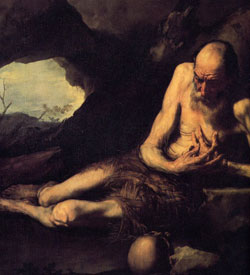We ask you, urgently: don’t scroll past this
Dear readers, Catholic Online was de-platformed by Shopify for our pro-life beliefs. They shut down our Catholic Online, Catholic Online School, Prayer Candles, and Catholic Online Learning Resources—essential faith tools serving over 1.4 million students and millions of families worldwide. Our founders, now in their 70's, just gave their entire life savings to protect this mission. But fewer than 2% of readers donate. If everyone gave just $5, the cost of a coffee, we could rebuild stronger and keep Catholic education free for all. Stand with us in faith. Thank you.Help Now >
Pentecost and The Gift of The Spirit: Be Transformed, Recreated, and Elevated Into Eternal Life
FREE Catholic Classes
"[God] gave himself to us through his Spirit. By the participation of the Spirit, we become communicants in the divine nature. . . . For this reason, those in whom the Spirit dwells are divinized" (St. Athanasius) Although it is true that the Holy Spirit can make his presence known through external signs and special gifts for the sake of unbelievers (1 Corinthians 12: 4-11), our personal Pentecost begins with the Sacrament of Baptism and is made deeper through the Sacrament of Confirmation.
Highlights
Catholic Online (https://www.catholic.org)
5/12/2016 (8 years ago)
Published in Living Faith
Keywords: Pentecost, gift of the Holy Spirit, Spirit, share in God's divine life, divinized, eternal life, divine family, crucify the flesh, self-mastery, F. K. Bartels
GLADE PARK, CO (Catholic Online) -- St. Cyril of Alexandria noted that after Christ's completion of his mission on earth it still remained necessary for us to become sharers in the divine nature of God. We have "to give up our own life," he wrote, "and be so transformed that we would begin to live an entirely new kind of life that would be pleasing to God. This was something we could do only by sharing in the Holy Spirit."
What does this entirely new kind of life entail? It is life in the Spirit; a life in which we are re-created anew, given a new purpose and perspective, and thus are joined to an astonishingly beautiful destiny: through the supreme gift of the Spirit, a divine and human kiss of intimate love, we are swept up into the divine life of the Holy Trinity, become members of the divine family, and immediately enter in a real way into life eternal -- not later, not "some day," but now and in the present. Although this entry into heavenly life is, of course, not yet fully realized here on earth, we are nonetheless drawn, through the indwelling Spirit whose love permeates the soul with supernatural radiance and light, into eternal life.
Calling our attention to Vatican IIs Lumen Gentium, which states that the "promised restoration which we are awaiting has already begun in Christ" (48), Benot-Dominique de La Soujeole writes of the nature of Christian life on earth: "Eternal life has already begun. After death, at the definitive entry into God's glory, it is not another life that will begin; rather, we will find the fulfillment of the life given us to live here on earth" (Vatican II: Renewal Within Tradition 44).
There is what might be termed a caveat, however. As St. Cyril noted, we "have to give up our own life." In loving God for his own sake, it is necessary to abandon inappropriate love of self in favor of love of the highest and greatest Good: God. Here we give ourselves over, completely and forever, to the Spirit: he becomes our true love. The indwelling Spirit is then cherished as our sustenance and energy and very life-source. In such an attentive gaze of love, we "walk by the Spirit," which means we are cautious not to "gratify the desires of the flesh," since the Spirit and the flesh are opposed to each other (Gal. 5:16). St. Paul is not, of course, suggesting that the human body is anything less than good; on the contrary, it is good because God made it. But it is crucial to understand the desires of the flesh are often set against the Spirit (Gal. 5:17).
Further, St. Paul reminds us that those who belong to Christ "have crucified their flesh with its passions and desires" (Gal. 5:24). This is first understood in light of the sacrament of Baptism, in which Christians are incorporated into Christ and receive the gift of the Spirit, and therefore share in the saving death of Jesus. Yet there is another dimension to what Paul is saying: those who follow Christ and have received the gift of the Spirit are to make the flesh subordinate to the movements of the Spirit. That is, Christians are to "crucify" or put to death the disordered desires of the flesh which conflict with not only the divine impulses of the Spirit but with his infinite goodness and holiness as well.
It is crucial to analyze our familiarity with the war between flesh and Spirit. That is, have we walked on to the battlefield and taken up the sword? Or, on the other hand, does the field of battle remain an unknown land due to our constant lack of participation? If we have not answered the call to holiness, if we are unfamiliar with the difficulties involved in "crucifying" the flesh, perhaps we have refused to march on to the field. Perhaps, instead of taking up arms, we have fled from this serious and important engagement.
Practically speaking, what are some things Catholics and other Christians can do in order to foster greater control over the flesh, which is integral to a life of holiness? First, we must give ourselves over entirely to the Spirit and rely in hope on God. But that is not to suggest inaction or even prayer only. On the contrary, there are tasks set before us. It is crucial to enter fully into the womb of mother Church and lead a sacramental life in Christ, that we may receive the life-giving grace of the sacraments, especially the Eucharist. So important is receiving Christ's body, blood, soul and divinity in the Eucharist that our Savior himself said: "Truly, truly, I say to you, unless you eat the flesh of the Son of man and drink his blood, you have no life in you" (Jn 6:53).
It is a mistake to attempt to embark on a life of holiness while in disregard of the Church who Christ himself instituted as the sacrament of salvation, and in whose nourishing womb we receive the words of truth and the sacraments of life, for to knowingly do so is to some degree an attempt to rely upon ourselves rather than on what God himself has given us by his good favor. It is not unlike saying to the Spirit: "I want your gifts, but not all of them." Here we come face to face with the fact that, while salvation is a free gift from God, we must appropriate the salvific sacrifice of Christ on the cross to ourselves by responding to the Spirit and following Christ: this entails governing our way of life and actions according to what God has revealed. And God most certainly has revealed the necessity of the Church.
The sacramental life in the Church is a life of unceasing prayer in the Spirit, in which one relies in trusting hope upon Christ's unfailing mercy. Although it is true that the Holy Spirit can make his presence known through external signs and special gifts for the sake of unbelievers (1 Corinthians 12: 4-11), our personal Pentecost begins with the Sacrament of Baptism and is made deeper through the Sacrament of Confirmation.
And there is more. In order to conquer the flesh, it is important to engage in voluntary and innocent acts of suffering for Christ. After all, that is what Christ himself did for our sake, when, in an incomparable display of love, he subjected himself to unimaginable brutality and suffering in his Passion and Death on the cross for the redemption of humankind. Jesus said: "Whoever serves me must follow me" (Jn 12:26). Words from God himself which we must apply to our lives.
There are innumerable ways in which we can engage in voluntary and innocent suffering. While these might at first seem trivial, never mind that, it is important to start small: if you like butter on your toast, forgo it; if you prefer a long, hot shower, keep it brief instead. Want to greatly enhance the effects? Have it cold! Praying the Rosary on one's knees, fasting, abstaining from pleasures, serving the poor and consoling the outcast; all of these strengthen the human spirit and will, fostering our ability to force the flesh into subordination to the Spirit. It is all about training in self-mastery: an imperative exercise which is inseparable from the life of holiness to which every Christian is called.
As the Church reminds us, "everyone whether belonging to the hierarchy, or being cared for by it, is called to holiness, according to the saying of the Apostle: 'For this is the will of God, your sanctification'" (LG 39; 1 Thess. 4:3; Cf. Eph. 1:4). The Christian life of holiness is made possible by the Spirit, whose transformative and regenerative love, unsurpassed in greatness and glory, elevates men beyond their own nature and grants them a share in God's own divine life.
"If we have given up our worldly way of life and submitted once for all to the laws of the Spirit, it must surely be obvious to everyone that by repudiating, in a sense, our own life, and taking on the supernatural likeness of the Holy Spirit, who is united to us, our nature is transformed so that we are no longer merely men, but also sons of God, spiritual men, by reason of the share we have received in the divine nature" -- St. Cyril of Alexandria
-----
F. K. Bartels is a Catholic writer who knows his Catholic Faith is one of the greatest gifts a man could ever receive. He is a contributing writer for Catholic Online. Visit him also at catholicpathways.com
---'Help Give every Student and Teacher FREE resources for a world-class Moral Catholic Education'
Copyright 2021 - Distributed by Catholic Online
Join the Movement
When you sign up below, you don't just join an email list - you're joining an entire movement for Free world class Catholic education.

-

-
Mysteries of the Rosary
-
St. Faustina Kowalska
-
Litany of the Blessed Virgin Mary
-
Saint of the Day for Wednesday, Oct 4th, 2023
-
Popular Saints
-
St. Francis of Assisi
-
Bible
-
Female / Women Saints
-
7 Morning Prayers you need to get your day started with God
-
Litany of the Blessed Virgin Mary
Vatican City Leads the Way in Ethical Artificial Intelligence Regulation
-

Rising from the Ashes: Southern California's Wildfire Tragedy Sparks Resilience and Hope in the ...
-

Catholic Medical Group Challenges Biden Administration Over Emergency Room Abortion Mandate
-
FDA Proposes New Front-Facing Nutrition Labels to Promote Healthier Choices
-
Introducing 'Journey with the Messiah' - A Revolutionary Way to Experience the Bible
Daily Catholic
 Daily Readings for Wednesday, January 15, 2025
Daily Readings for Wednesday, January 15, 2025 St. Paul the Hermit: Saint of the Day for Wednesday, January 15, 2025
St. Paul the Hermit: Saint of the Day for Wednesday, January 15, 2025 Prayer for a Blessing on the New Year: Prayer of the Day for Tuesday, December 31, 2024
Prayer for a Blessing on the New Year: Prayer of the Day for Tuesday, December 31, 2024- Daily Readings for Tuesday, January 14, 2025
- St. Felix of Nola: Saint of the Day for Tuesday, January 14, 2025
- St. Theresa of the Child Jesus: Prayer of the Day for Monday, December 30, 2024
![]()
Copyright 2024 Catholic Online. All materials contained on this site, whether written, audible or visual are the exclusive property of Catholic Online and are protected under U.S. and International copyright laws, © Copyright 2024 Catholic Online. Any unauthorized use, without prior written consent of Catholic Online is strictly forbidden and prohibited.
Catholic Online is a Project of Your Catholic Voice Foundation, a Not-for-Profit Corporation. Your Catholic Voice Foundation has been granted a recognition of tax exemption under Section 501(c)(3) of the Internal Revenue Code. Federal Tax Identification Number: 81-0596847. Your gift is tax-deductible as allowed by law.









 Daily Readings for Wednesday, January 15, 2025
Daily Readings for Wednesday, January 15, 2025 St. Paul the Hermit: Saint of the Day for Wednesday, January 15, 2025
St. Paul the Hermit: Saint of the Day for Wednesday, January 15, 2025 Prayer for a Blessing on the New Year: Prayer of the Day for Tuesday, December 31, 2024
Prayer for a Blessing on the New Year: Prayer of the Day for Tuesday, December 31, 2024

